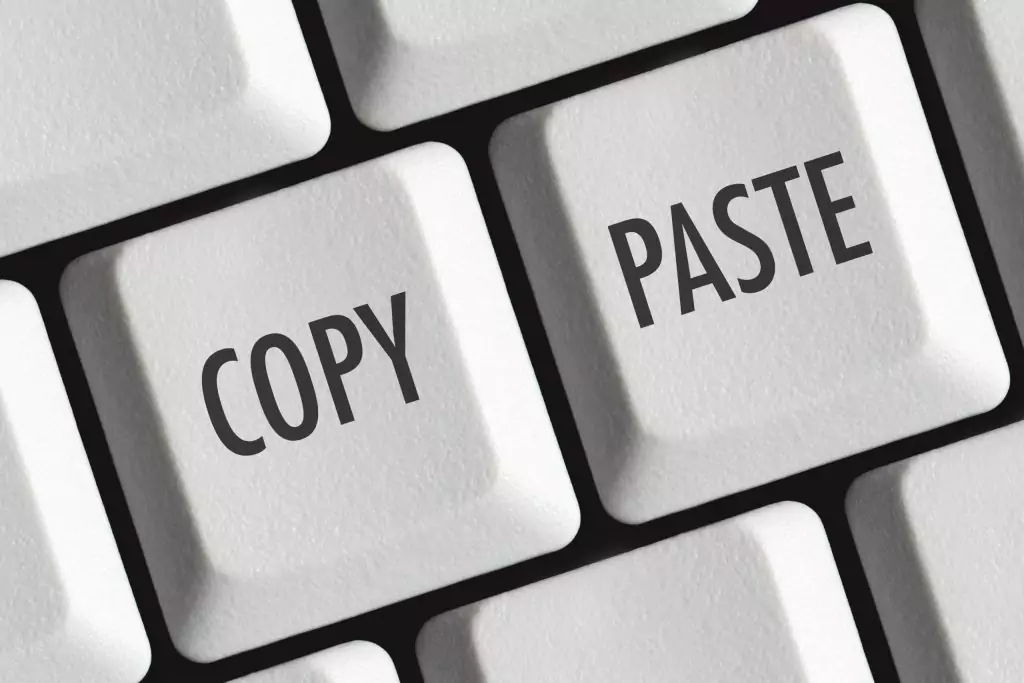
Another heart-breaking story from Reddit highlighting the urgent need for bringing in certain standards into AI-writing issues.

✅ AI Essay Writer ✅ AI Detector ✅ Plagchecker ✅ Paraphraser
✅ Summarizer ✅ Citation Generator
Key Takeaways:
- A professor suspected a student of using ChatGPT, an AI language model, to cheat on his assignments, leading the student to spend 3 hours at the university to prove his innocence.
- This incident underscores the rising concern about the potential misuse of AI tools like ChatGPT in academic settings, which could lead to plagiarism or academic dishonesty.
- The situation highlights the need for clear guidelines and understanding about the use of AI in academic work, as well as for tools to detect potential misuse, to ensure academic integrity.
A student shared his experience on Reddit saying he was recently accused of cheating on an essay by their professor, who relied on seemingly the best AI writing detector for flagging academic dishonesty. The diligent student, who had completed his essay ahead of schedule, found himself in the crosshairs of their professor’s unfounded suspicions.
Despite trying to discuss the issue with the professor, the student was met with disbelief. Taking matters into his own hands, the student contacted the dean and arranged a meeting with both the dean and the professor to present his work history and give a presentation on his essay.
After proving his understanding and innocence, the student’s grade was changed, but the time-consuming process left him frustrated. The professor, still relying on the AI software’s results, continued to believe the student had cheated. This incident has raised concerns about the reliability of AI software in detecting academic dishonesty and the irony of professors relying on AI to combat AI-assisted cheating.
The student’s experience has shed light on the anxiety and paranoia that can result from the use of AI software in academia, and it highlights the need for a more nuanced approach to preventing and detecting academic dishonesty. While relying on AI fully might be controversial, students can check out essay service review for inspiration when writing their future paper.
Other Redditors supported this student and shared their experiences.
Dealing with False Accusations and Documenting Your Work
Many students face challenges when navigating academic bureaucracy and dealing with issues such as false accusations of plagiarism. One helpful tip is to use extensions like Draftback for Google Docs or the version history feature in Office 365 with OneDrive. These tools allow students to show a time-lapse of their work and prove their work’s originality.
“I encourage everyone to get the extension draftback for google docs. It will show you a time lapse of your work and you can see when something is copy pasted in, like a huge chunk of text or something.”
“If you use Office 365 and save your MS word document to OneDrive, there is a version history feature similar to Google Docs. It does exactly the same thing and shows the last edited document versions. These can be opened for viewing previous versions of a document and the file name includes a corresponding date/time stamp.”
Equally important is learning to document and date your work, whether it’s for school, a job, or even mailing a package. Taking the time to ensure that everything is properly documented can save you from future headaches when things go awry.
Navigating College Bureaucracy
College bureaucracy can be frustrating, with many students sharing stories of being sent from one department to another, with some even writing petitions over 90 pages long to resolve their issues. However, the key to successfully dealing with bureaucracy is learning the process, preparing for it, and patiently following through.
- The person telling you the rules is rarely the one who made them or can change them, but going up the ladder means taking the time to learn the process, prepare for it, then deal it.
- Documenting your work. It doesn’t matter if it’s schoolwork, job work, or mailing something for Ebay, document and date so you can prove you did it.
“The bureaucracy is awful. I had a situation I dealt with where I was sent to fifteen different people, some multiple times, with many who couldn’t meet with me for several weeks because their department had not enough people at too many meetings. I had to write out two different petitions, one that was nearly 40 pages long, and one that was over 90 pages long. The whole process took a year.”
AI Detection Software Limitations
AI detection software, like those used to detect plagiarism, can sometimes produce confusing results due to their inherent design. AI models like ChatGPT are created to mimic human responses, and thus their writing patterns are based on human writing. As a result, it’s not surprising if a human’s writing occasionally resembles an AI-generated text. Some students have even found inconsistencies in AI detection software when comparing their own work to that of ChatGPT.
“Anti-plagiarism tools are so stupid. Chatgpt and similar were created to recreate human responses. How is a software capable of detecting if something is “mimicking” a human? It’s dumb. Yes, I know the software works by “picking up patterns common in AI writing.” However, those patterns were created BECAUSE of what it learned from observing human writing! I hope I’m making sense here. Basically, it’s not that weird if a human “writes like an AI” because an AI is trying to “write as a human.”
Adapting to AI in Education
Both students and professors are grappling with the increasing presence of AI in academia. While some professors acknowledge the usefulness of AI, others are struggling to adapt to its impact on education. It’s essential for the academic community to learn how to handle AI and integrate it into the learning process effectively.
Strategies for Writing Papers and Providing Evidence
When writing a paper, having a structured approach can be helpful in case you need to provide evidence of your work’s originality. One suggested method includes:
- Brainstorming relevant ideas or concepts to include in the paper, usually through a handwritten map.
- Listing potential articles and sources to use, by saving their URLs in a document.
- Printing the articles, highlighting specific quotes or ideas to include in the paper.
- Creating an outline in a word document, organizing ideas and incorporating quotes or concepts from the sources.
Having these separate pieces of evidence on hand can help you present a compelling case to your professor if your work is ever questioned.
Academic Integrity in the Age of AI: Challenges and Solutions
With the advent of advanced technologies like Artificial Intelligence (AI), the landscape of academic work is rapidly changing. While AI tools offer unprecedented opportunities for learning and research, they also pose new challenges to academic integrity.
| Challenges | Solutions |
|---|---|
| Plagiarism and Dishonesty | Implement plagiarism detection tools that can identify AI-generated text. |
| Overreliance on AI for Academic Work | Develop and enforce clear guidelines on appropriate use of AI tools. |
| Authenticity of Student Work | Regularly update assignments and exams to minimize cheating opportunities. |
| Lack of Awareness | Conduct awareness campaigns about academic integrity in the digital age. |
| Lack of Regulation for AI Usage | Advocate for institutional and governmental policies on AI in academics. |
The Importance of Academic Integrity: Building a Foundation for Success

Academic integrity is a fundamental aspect of education that establishes a strong foundation for success. It encompasses a set of values, principles, and behaviors that promote honesty, fairness, and ethical conduct in academic pursuits. Upholding academic integrity is not only essential for individual growth but also crucial for maintaining the integrity and reputation of educational institutions. Here, we explore the importance of academic integrity and how it contributes to building a foundation for success.
- Fostering a Learning Environment: Academic integrity cultivates a culture of learning, trust, and respect within educational institutions. When students engage in honest and ethical practices, it creates an environment conducive to intellectual growth, critical thinking, and knowledge sharing. Academic integrity establishes a level playing field where all students have an equal opportunity to learn and excel.
- Ethical Development: Upholding academic integrity nurtures ethical development in students. It instills values such as honesty, integrity, responsibility, and fairness, which are transferable to various aspects of life beyond academia. By practicing academic integrity, students develop a sense of personal accountability and ethical decision-making skills that will benefit them in their future endeavors.
- Authentic Learning and Skill Development: Academic integrity encourages students to take ownership of their learning. When students complete assignments, projects, or exams honestly and independently, they actively engage with the material, enhancing their understanding and skill development. Authentic learning experiences foster critical thinking, problem-solving abilities, and the mastery of subject matter, all of which are essential for long-term success.
- Building a Reputation of Trustworthiness: Academic integrity plays a pivotal role in building an individual’s reputation as a trustworthy and reliable professional. Employers, graduate schools, and other institutions value candidates who have demonstrated integrity in their academic pursuits. By maintaining academic integrity, students establish a solid foundation for their future careers, earning the trust and respect of potential employers or colleagues.
- Avoiding Negative Consequences: Engaging in academic dishonesty can have severe consequences that jeopardize a student’s educational and professional prospects. Plagiarism, cheating, or other forms of dishonest behavior can lead to academic penalties, damage personal reputation, and result in long-term consequences such as academic probation, suspension, or even expulsion. In professional settings, unethical behavior can lead to severe repercussions, including loss of employment or legal consequences.
- Contributing to Knowledge and Society: Upholding academic integrity promotes the advancement of knowledge and benefits society as a whole. Honest and ethical research ensures that new discoveries are built upon a solid foundation, fostering scientific progress and innovation. By respecting intellectual property rights and properly citing sources, students contribute to the integrity of scholarly work and the broader academic community.
- Personal Growth and Confidence: Academic integrity allows students to develop a sense of personal pride, confidence, and self-worth. When students achieve success through their honest efforts, they gain a genuine sense of accomplishment, reinforcing their belief in their abilities and fostering self-confidence. Upholding academic integrity nurtures a positive self-image, empowering students to take on challenges with integrity and perseverance.
Educational institutions play a vital role in promoting academic integrity by providing clear guidelines, educating students about ethical practices, and fostering a culture of integrity. However, upholding academic integrity is a personal responsibility that rests with each student. By embracing academic integrity, students lay the groundwork for their future success, both academically and professionally, while contributing to the integrity and reputation of the educational community as a whole.
Conclusion
Navigating the challenges of academic bureaucracy and adapting to AI in education can be daunting. However, by documenting your work, understanding the limitations of AI detection software, and employing effective writing strategies, students can successfully overcome these hurdles and excel in their academic pursuits.
- Best assignment writing service: Our top 10 – Reserve Version
- Best assignment service: Our top 10
- Ground News Review 2025
- Media Bias Fact Check Review 2025
- PolitiFact Review 2025
Follow us on Reddit for more insights and updates.





Comments (0)
Welcome to A*Help comments!
We’re all about debate and discussion at A*Help.
We value the diverse opinions of users, so you may find points of view that you don’t agree with. And that’s cool. However, there are certain things we’re not OK with: attempts to manipulate our data in any way, for example, or the posting of discriminative, offensive, hateful, or disparaging material.